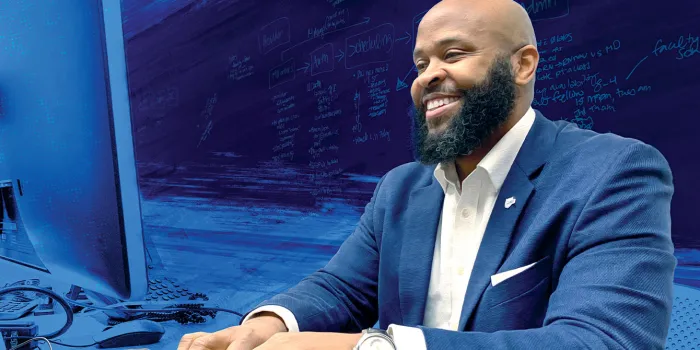I’ve known that I wanted to be a physician since I was 5 years old. I fell and cut my leg, and when the doctor stitched me up, it was almost as if it was divinely appointed. From that moment on, I knew medicine was my calling.
During medical school, I vividly remember one hematologist’s lecture about blood: something that transports oxygen and nutrients throughout our bodies. Her powerful description captivated me, and from then on, again, I knew. I directed my energy toward hematology as well as oncology, which go hand in hand.
Today, I am an assistant professor of clinical medicine at Tulane University, and I’m also the medical director of cancer management and oncology services at the University Medical Center New Orleans.
I spent nearly 10 years in private practice and saw physician burnout firsthand, and COVID served to accelerate the problem. From a provider perspective, I believe that setting boundaries can help. There’s been a cultural shift in terms of what’s expected from a physician. When I started out, there was more built-in separation of work and personal space.
Now, those guardrails no longer exist. Someone can always be “present,” whether by email, Zoom, cellphone, etc. So, it’s even more difficult for physicians to establish boundaries, and it’s more important than ever that they do.
An Asymmetrical System
These days, I’m in academic practice, with a particular focus on advocacy and health disparities for patients with hematologic disorders and malignancies. Addressing these disparities is complicated, but my instinct is to always follow the scientific method — the first step of which is to identify the problem.
We need to take an honest, broad, comprehensive look to figure out everything that affects a person’s ability to receive proper health care. Does that person have access to all stages of their care? Is there a specialist they can visit to manage their therapy? What are that person’s living conditions? What are the things that might interfere with them receiving the most appropriate, up-to-date care?
In addition, we need people to speak out against inequities. Certain individuals benefit from a system staying as it is, and it takes courage to be in those spaces and to speak to fairness and justice.
Courage is something I work on every single day. My aim is to never be complicit with an arrangement that I know is damaging. I very much relate to the Maya Angelou quote “I am convinced that courage is the most important of all the virtues. Because without courage, you can’t practice any other virtue consistently.”
I’ve been honored to have received several awards throughout my career. And while I’ve been humbled at this recognition, my greatest reward is when I hear that a patient or their family has felt seen and cared for. This is what keeps me going and keeps me grateful.

